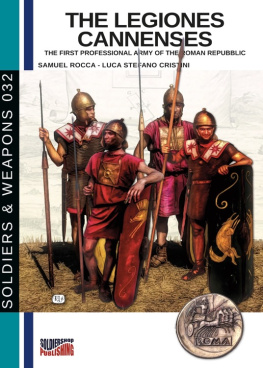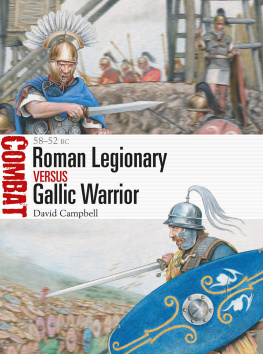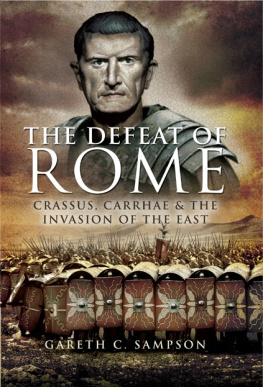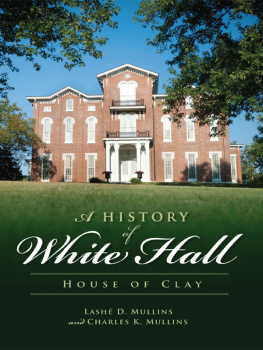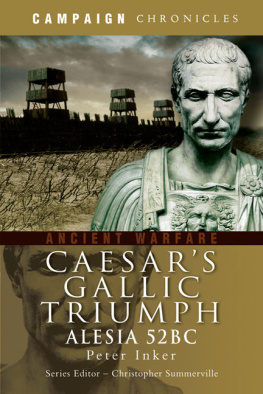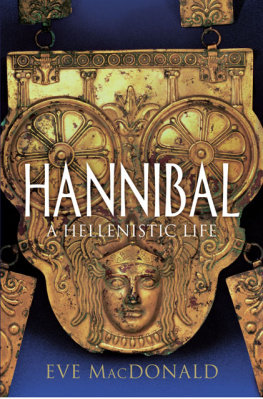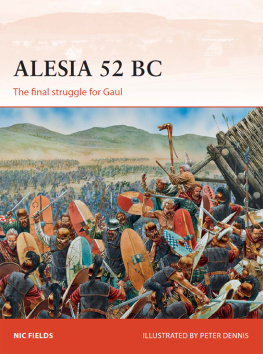
First published in Great Britain in 2012 by
Pen & Sword Books Ltd
47 Church Street
Barnsley
South Yorkshire
S70 2AS
Copyright Jeremiah McCall 2012
ISBN 978-1-84884-379-0
Digital Edition ISBN: 978-1-78346-156-1
The right of Jeremiah McCall to be identified as author of this work has been asserted by him in accordance with the Copyright, Designs and Patents Act 1988.
A CIP catalogue record for this book is available from the British Library.
All rights reserved. No part of this book may be reproduced or transmitted in any form or by any means, electronic or mechanical including photocopying, recording or by any information storage and retrieval system, without permission from the Publisher in writing.
Typeset in 11pt Ehrhardt by
Mac Style, Beverley, E. Yorkshire
Printed and bound by MPG
Pen & Sword Books Ltd incorporates the Imprints of Pen & Sword Aviation,
Pen & Sword Family History, Pen & Sword Maritime, Pen & Sword Military,
Pen & Sword Discovery, Wharncliffe Local History, Wharncliffe True Crime,
Wharncliffe Transport, Pen & Sword Select, Pen & Sword Military Classics,
Leo Cooper, The Praetorian Press, Remember When, Seaforth Publishing
and Frontline Publishing.
For a complete list of Pen & Sword titles please contact
PEN & SWORD BOOKS LIMITED
47 Church Street, Barnsley, South Yorkshire, S70 2AS, England
E-mail:
Website: www.pen-and-sword.co.uk
For Olivia
Introduction
There were few names from the middle Republic that were better known to later generations of Romans than Marcus Claudius Marcellus. Sword of the Republic he was labeled by one writer for his audacity in battle, and he secured a reputation for valour with generations of Romans. Yet for all the consideration the Romans gave to their hero Marcellus, there exists no modern biography of him. Such a study is worthwhile, however, because Marcellus military and political career gives modern readers an excellent vantage point from which to view the military and political struggles of the Romans in the late third century BC and the role of military successes in the aristocratic culture of the Roman Republic. For readers relatively new to the military and politics of the late third century Republic, Marcellus provides perhaps the best point of access; for those familiar with the period, Marcellus offers a different perspective. Indeed, his military honours were unmatched by any other aristocrat of the middle Republic.
He was of the generation that fought in the First and Second Punic Wars, the greatest of the struggles against Carthage to dominate the Mediterranean. As Plutarch, a later biographer, put it:
They were the foremost Romans of his generation. In their youth they campaigned against the Carthaginians for the possession of Sicily: in their prime they fought against the Gauls for the defence of Italy itself, and as veterans they found themselves matched once more against the Carthaginians, this time under Hannibal. In this way they never enjoyed the relief from active service which old age brings to most men, but because of their noble birth and their prowess in war they were constantly summoned to take up new commands.
Plutarch, like most Roman authors, tended to wax more than a bit poetically on the nobility and prowess of the old Romans, but he still had a point. Marcelluss career and reputation from early adulthood to his death in the saddle, were based on his military exploits. As a young soldier fighting in Sicily he won a reputation for skill in single combat. When first elected consul, one of the two chief military and political officials of the Republic, he earned the grand victory celebration known as a triumph for soundly defeating a Gallic tribe in battle. Rarer still, he slew the Gallic king Virdumarus in single combat on that day when the Gallic army crumbled and earned the spolia opima, an honour, according to Roman antiquarians, that had only been earned by two others: a semi-legendary consul two centuries earlier and Romulus himself, the even more legendary founder of Rome. When Hannibal of Carthage brought an army across the Alps and inflicted a series of disastrous defeats on Roman armies (218216 BC ), Marcellus preserved a ray of hope for the Republic by being the first to check Hannibals string of victories in a skirmish outside the central Italian city of Nola. The war against Hannibal continued, and Marcellus soon won a special military command by the grant of the Roman people; by 214 BC , he had won the consulship again. Now his task was to return to the island of Sicily, where he began his military career, and subdue the powerful rebel city of Syracuse. After several years of campaigning, the Roman armies under his command occupied Syracuse and, at Marcellus orders, plundered the city. The wealth was carried through the streets of Rome in his second triumph, and used to decorate the city and fund the construction of his victory temple to the gods Honos and Virtus. His exploits, and the fascination with the period when the Republic went from a regional power to controlling a sizable part of the western Mediterranean, made Marcellus a fascinating subject for Roman writers. He remains so today.
For Romans of the Republic who were interested in the history of the aristocrats who led them, Marcus Claudius Marcellus stood out. Simply put, he had one of the most distinguished military and political careers in the Republic, one that dwarfed those of most who came before or since. By the time he died in 208 BC , the victim of a Carthaginian ambush, he had won election five times to the consulship, a feat matched by a small handful and topped once during the four centuries the office existed in the Republic. He was a field commander for nine consecutive years during the struggle against Hannibal, surpassed in this record only by Publius Cornelius Scipio Africanus, who defeated the great Carthaginian general Hannibal himself on the plains of North Africa. Consequently, Marcellus career and exploits became the stuff both of history and legend for later writers. The late Republican politician and orator, Cicero, contrasted Marcellus as a model of honour and moderation with the corrupt governor Verres. The grand historian of the Republic, Livy, emphasized his tenacity on the battlefield and his dogged pursuit of Hannibal when the Republic seemed on the verge of collapse. For Frontinus, that recorder of military stratagems in the early empire, Marcellus was a consummate strategist. Silius Italicus was inspired to capture Marcellus exploits in verse. The Greco-Roman moralist Plutarch recorded Marcellus deeds to illustrate to his audience the virtues of a simpler time. Nor are these the only examples; Marcellus deeds were trumpeted by the Romans for the better part of 1,000 years.
None of this record of praise does anything to alleviate the problem of accurately representing Marcellus life and career, the problem posed by the available evidence and its sources. It is a problem central to any historical analysis of the Roman Republic and its men and women, one which many approaching the history of the Republic may not fully appreciate, and one that must be exposed before looking too carefully at the records for Marcellus.
Modern readers interested in current events and recent history, modern figures and movements, are aware that, if anything, there are too many records, too many documents, too much information available. In addition to the mountain of print resources, there is a digital Everest of blogs, forums, and tweets; YouTube videos; Facebook profiles; WikiLeaks; and so on. A staggering number of records exist for all but the most private, intimate, or casual events and their causes. Someone wins the lottery, and the event and the winners reactions are captured on local news, blogged about, twittered about, perhaps even disseminated through a home video on YouTube. A politician commits an indiscretion, and hundreds of takes on the situation spread across the globe, fuelled by the internet. Resistance and revolution erupt in countries like Iran, Egypt, and Libya, and we can access a constant stream of information not only from 24hour news feeds, but from the activists themselves on social media sites and even websites custom crafted for spreading movements. Celebrity foibles, crimes, political and military decisions, religious crusades, the records and patterns of private citizens, if it happened in anything but the most private or banal of arenas and sometimes even then broadly speaking, the records exist for it. While the countless number of human actions and interactions on any given day insure there are many more undocumented events than documented, even in the modern world, the point is still well made: students of the modern world have access to more evidence than they can possibly use.




